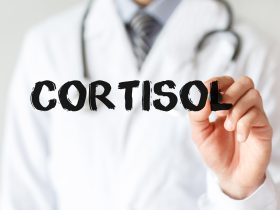If thyroid medication produces unwanted side effects, individuals may consider exploring natural remedies as an alternative option. These remedies may include adopting a selenium-rich, sugar-free, or gluten-free diet, as well as incorporating vitamin B supplements and probiotics into their routine.
However, it’s crucial to consult with a doctor before attempting any natural remedies.
The conventional treatment for hypothyroidism typically involves daily intake of thyroid hormone replacement medication. While medications are effective, they may also bring about undesirable side effects, and forgetting to take a pill could exacerbate symptoms.
In certain situations, natural remedies may present fewer side effects and better align with an individual’s overall lifestyle.
Nonetheless, it’s important to emphasize that natural remedies should not be viewed as a substitute for medications prescribed by a healthcare professional. Consulting with a doctor is essential to ensure safe and appropriate management of thyroid health.
Natural Remedies for Hypothyroidism
The aim of natural remedies or alternative medicine is to address the underlying cause of thyroid issues. Thyroid problems can often stem from factors such as poor diet, stress, or nutritional deficiencies in the body.
Making dietary changes and incorporating herbal supplements are two strategies that may help manage thyroid conditions with potentially fewer side effects compared to traditional thyroid medication.
Additionally, herbal supplements can be beneficial for individuals who do not respond well to conventional medications, particularly in cases of low or underactive thyroid function.
It’s important to note that while natural remedies can complement traditional treatments, they should not be viewed as substitutes, especially for conditions like Hashimoto’s thyroiditis or post-surgical thyroid issues, where levothyroxine supplementation is typically necessary.
Here are five natural remedies to consider as adjuncts to your treatment plan:
- Give Up Sugar
Sugar and processed foods are known to contribute to increased inflammation within the body. Elevated inflammation levels can hinder the conversion of thyroxine (T4) to triiodothyronine (T3), another crucial thyroid hormone, potentially exacerbating symptoms and thyroid conditions.
Moreover, while sugar may provide a temporary energy boost, its consumption can lead to fluctuations in energy levels. One of the reasons to give up sugar is that it may aid in stabilizing energy levels and could also have benefits for stress management and skin health.
Transitioning to a sugar-free diet may pose challenges, but the potential benefits for thyroid health make it a worthwhile endeavor. By reducing sugar intake and opting for whole, nutrient-dense foods, individuals can support thyroid function and overall well-being.
However, it’s important to make dietary changes under the guidance of a healthcare professional to ensure a balanced and sustainable approach to nutrition.
- Take Care of Your Gut Health
Research conducted by the National Institutes of Health (NIH) has explored the connection between hypothyroidism and gastrointestinal (GI) issues, particularly focusing on altered GI motility associated with hypothyroidism.
It has been observed that these alterations in GI motility can contribute to small intestinal bacterial overgrowth (SIBO), leading to chronic GI symptoms like diarrhea.
Probiotic supplements contain beneficial live bacteria that can support the health of your stomach and intestines. In addition to supplements, fermented foods and beverages such as kefir, kombucha, certain cheeses, and yogurt also contain helpful probiotics.
It’s worth noting that the Food and Drug Administration (FDA) has not approved the use of probiotics for the prevention or treatment of any specific condition.
Therefore, it’s essential to consult with your doctor to determine whether probiotic supplements or dietary sources may be beneficial for you. Professional guidance ensures appropriate and safe supplementation tailored to your individual health needs.
- Increase Vitamin B Intake
Certain vitamin supplements can play a role in supporting thyroid health. Low levels of thyroid hormones may impact the body’s vitamin B-12 levels. Supplementing with vitamin B-12 may help in repairing some of the damage caused by hypothyroidism.
Vitamin B-12 supplementation can be particularly beneficial in alleviating the tiredness associated with thyroid disease.
Additionally, thyroid disease can affect vitamin B-1 levels. You can incorporate more B vitamins into your diet by consuming foods such as peas, beans, asparagus, sesame seeds, tuna, cheese, milk, and eggs.
It’s important to note that vitamin B-12 supplementation is generally safe for most healthy individuals when taken at recommended levels.
However, it’s advisable to consult with your doctor to determine the appropriate dosage of vitamin B-12 for your specific needs. Professional guidance ensures safe and effective supplementation tailored to your health condition and overall well-being.
- Opt for a Gluten-Free Diet
For many individuals with hypothyroidism, adopting a gluten-free diet goes beyond a passing trend. The National Foundation for Celiac Awareness highlights a notable correlation between thyroid disease and celiac disease.
Celiac disease is a digestive disorder triggered by gluten, a protein found in wheat, barley, and rye, which prompts an immune response in the small intestines.
While current research doesn’t conclusively support a gluten-free diet as a treatment for thyroid disease, many individuals with conditions like Hashimoto’s thyroiditis and hypothyroidism report feeling better after eliminating gluten-containing foods from their diet.
However, there are drawbacks to going gluten-free. Firstly, the cost of purchasing gluten-free products is often considerably higher than their wheat-containing counterparts. Additionally, some prepackaged gluten-free foods may lack nutritional value, as they tend to have higher fat content and lower fiber compared to wheat-based products.
It’s essential to weigh the potential benefits and drawbacks of a gluten-free diet and consider individual preferences and health goals. Consulting with a healthcare professional can provide personalized guidance on dietary choices and ensure a balanced and sustainable approach to nutrition.
- Eat Foods Rich in Selenium
Selenium is a trace element essential for thyroid hormone metabolism, as stated by the National Institutes of Health (NIH). Numerous foods are natural sources of selenium, including tuna, turkey, Brazil nuts, and grass-fed beef.
In cases of Hashimoto’s thyroiditis, an autoimmune condition targeting the thyroid gland, the body’s selenium levels may be depleted due to the immune system’s attack on the thyroid. Supplementing with selenium has shown promise in helping to balance thyroxine (T4) levels in some individuals.
However, it’s crucial to consult with your doctor to determine the appropriate dosage of selenium for your specific needs, as individual requirements may vary. Professional guidance ensures safe and effective supplementation tailored to your health condition and overall well-being.
Conclusions
For many individuals, the benefits of complementing medication with a natural thyroid treatment plan outweigh the drawbacks. However, it’s crucial to note that if you have undergone thyroid surgery, a natural thyroid treatment plan may not be suitable for you.
As always, it’s essential to discuss any treatment plans, including natural remedies, with your doctor before implementing them. Your healthcare provider can offer personalized advice and guidance tailored to your specific health needs and circumstances.















Find Us on Socials